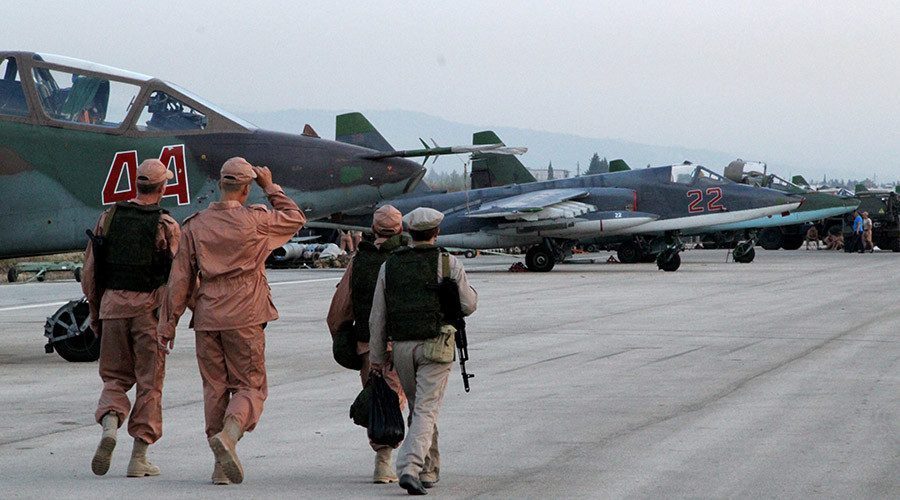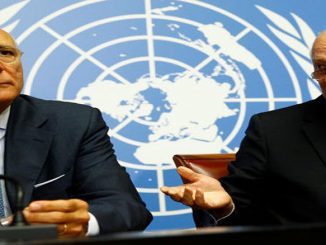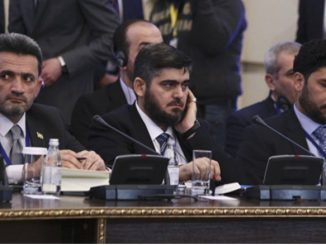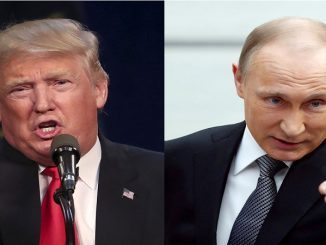
Moscow was not waiting to use its veto power against France’s draft resolution in the UN Security Council to continue its colonial occupation of Syria and to expand its military forces operating in most of the Syrian territory by land, sea, and air.
Moscow had already begun that almost a year ago with the early Russian intervention and then the signing of the joint defense agreement with the Assad regime that grants Russia the right for full intervention and the use of all the vital facilities of military and civilian Syrian order for the facilitation of the Russian troops. The Russian Duma announced the application of terms of the agreement to give Russian forces the permission to carry out foreign operations (in Syria) and stay there indefinitely.
This development – which came after the announcement of the use of Tartus naval base – represents the reinforcement of the systematic occupation plans taking place on several levels. At the level of military expansion, there is the use of more intense fire and the seizure of military and civilian facilities to establish new bases for the Russian troops in multiple places covering all Syrian regions: the South including Damascus and its countryside, the central region of Homs and Palmyra, the northern area including Aleppo and Hasaka, with the main bases for command and logistical support in the Syrian coast – those include most Syrian military airports with renewed and developed military structures from new runways and control centers developed and strengthened with military capabilities.
Moscow will upgrade the Tartus naval base – consisting of mooring pier and a hospital field – to become its permanent naval base; an advanced base allowing the Russian fleet to return to the warm Mediterranean waters after years of having the US sixth fleet roaming freely in the region. Meanwhile, the other reason is to consolidate Russian presence in Syria – from intervening to occupation – and for a long period, according to Russian leaders, on the basis that the Tartus base is leased to Russia for a period of 99 years.
This aggressive Russian policy towards the Syrians has amounted to a disregard for international positions. If Moscow enters the international relations solo, it would regain whereby the position that it has been lacking since the end of the bipolar world – which was crumbled by international changes starting with the transformation of European political socialist systems going through the dismantling of the Soviet Union, which Gorbachev accomplished professionally; it lost Moscow its international stature and its international intervention ability. Moscow’s power was back then equal to the power of the third world at liberating themselves from colonialism.
The great transformation in the era of the Russian Tsar, Putin, is that he has become the striking force of right and liberty and the support of the Assad tyranny which violated everything in Syria with direct and unlimited support by both Moscow and Tehran. These powers were able to commit war crimes against the Syrian people represented in systematic deportations and genocide mainly against civilians, and their continuous and frequent use of internationally prohibited weapons, such as phosphorous, chemical, vacuum bombs and cluster.
The continued Russian action in criminality and intervention reaching today and after a year from the start of the Russian aggression in full military occupation and in response to Assad’s cry for help – which Assad’s so-called parliament would not delay to simulate the Russian Duma decision of legitimizing the Russian occupation. Moscow paved the way for the legitimization through the armistice agreement with the United States to make the sharing of supervising the operational areas, areas under full control, a legal action.
However, Moscow – which has thrown the agreement behind – actually seeks to deprive Washington of any ability of movement in Syria, considering it completely a Russian military zone according to the strategic agreement signed by Assad. This agreement has in fact allowed for the spread of a Russian air cover over Syria, which all-in-all explains to a large degree the reasons for the use of Moscow’s right of veto against the French project; it does not want any international party intervening in Syria since it is fully aware that Washington’s talk of military operations aimed at ousting the Assad regime is just talk in the air, and that the White House is not going to do any intervention of this kind.
But on the other hand, has Moscow done all of that by itself? Or it did not ignore the interests of the international forces in the region, and therefore there will be no objection to its political and military projects in Syria as long as the strategic interests of the United States are not in danger!



